 W
WAi Weiwei is a Chinese contemporary artist and activist. Ai grew up in the far north-west of China, where he lived under harsh conditions due to his father's exile. As an activist, he has been openly critical of the Chinese Government's stance on democracy and human rights. He investigated government corruption and cover-ups, in particular the Sichuan schools corruption scandal following the collapse of "tofu-dreg schools" in the 2008 Sichuan earthquake. In 2011, Ai Weiwei was arrested at Beijing Capital International Airport on 3 April, for "economic crimes". He was detained for 81 days without charge. Ai Weiwei emerged as a vital instigator in Chinese cultural development, an architect of Chinese modernism, and one of the nation's most vocal political commentators.
 W
WChai Ling is a Chinese psychologist who was one of the student leaders in the Tiananmen Square protests of 1989. She is the founder of All Girls Allowed, an organization dedicated to ending China's one-child policy, and the founder and President of Jenzabar, an enterprise resource planning software firm for educational institutions.
 W
WChristina Chan is a political activist in Hong Kong, known for her stand on human rights, democracy and Tibetan independence. She is enrolled in a master's degree in philosophy in the University of Hong Kong.
 W
WChen Guangcheng is a Chinese civil rights activist who has worked on human rights issues in rural areas of the People's Republic of China. Blind from an early age and self-taught in the law, Chen is frequently described as a "barefoot lawyer" who advocates for women's rights, land rights, and the welfare of the poor.
 W
WDing Zilin is a retired professor of philosophy and the leader of the political pressure group Tiananmen Mothers.
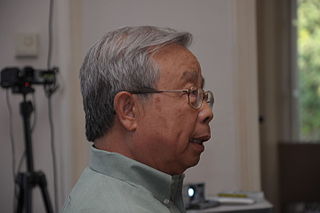 W
WFang Lizhi was a Chinese astrophysicist, vice-president of the University of Science and Technology of China, and activist whose liberal ideas inspired the pro-democracy student movement of 1986–87 and, finally, the Tiananmen Square protests of 1989. Because of his activism, he was expelled from the Communist Party of China in January 1987. For his work, Fang was a recipient of the Robert F Kennedy Human Rights Award in 1989, given each year to an individual whose courageous activism is at the heart of the human rights movement and in the spirit of Robert F. Kennedy's vision and legacy. He was elected an academician of the Chinese Academy of Sciences in 1980, but it was revoked after 1989.
 W
WHu Jia is a Chinese civil rights activist and noted critic of Communist Party of China. His work has focused on the Chinese democracy movement, Chinese environmentalist movement, and HIV/AIDS in the People's Republic of China. Hu is the director of June Fourth Heritage & Culture Association, and he has been involved with AIDS advocacy as the executive director of the Beijing Aizhixing Institute of Health Education and as one of the founders of the non-governmental organization Loving Source. He has also been involved in work to protect the endangered Tibetan antelope. For his activism, Hu has received awards from several European bodies, such as the Paris City Council and the European Parliament, which awarded the Sakharov Prize for Freedom of Thought to him in December 2008.
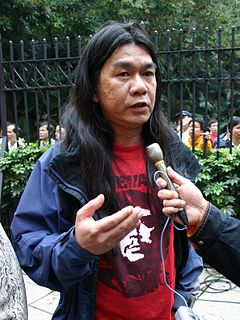 W
WLeung Kwok-hung, also known as "Long Hair" (長毛), is a Hong Kong politician and social activist. He was a member of the Legislative Council, representing the New Territories East. A Trotskyist in his youth, he was a founding member of the Revolutionary Marxist League. He became a political icon with his long hair and Che Guevara T-shirt in the protests before he was elected to the Legislative Council in 2004. In 2006, he co-founded a social democratic party, the League of Social Democrats (LSD) of which he was the chairman from 2012 to 2016.
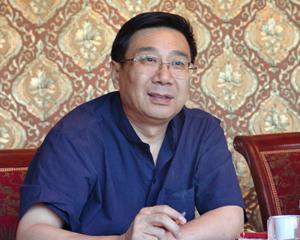 W
WLi Datong was the Managing Editor of Freezing Point, a section of China Youth Daily. He now writes for openDemocracy, which is based in London.
 W
WLi Hongkuan is a Chinese dissident.
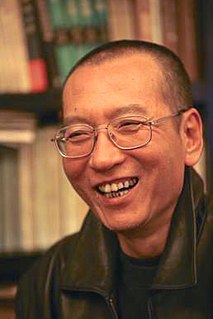 W
WLiu Xiaobo was a Chinese writer, literary critic, human rights activist, philosopher and Nobel Peace Prize laureate who called for political reforms and was involved in campaigns to end communist one-party rule in China. He was incarcerated as a political prisoner in Jinzhou, Liaoning. On 26 June 2017, he was granted medical parole after being diagnosed with liver cancer, and subsequently died on 13 July 2017.
 W
WMao Yushi is a Chinese economist. Mao graduated from Shanghai Jiao Tong University in 1950 and was labeled a 'rightist' in 1958. In 1986 Mao was a visiting scholar at Harvard University and in 1990 Mao was a senior lecturer at Queensland University.
 W
WNi Yulan is a civil rights lawyer in the People's Republic of China. She holds a law degree from China University of Political Science and Law, and officially became a lawyer law in 1986. Ni has established herself in the field of human rights lawyering by defending persecuted groups such as Falun Gong practitioners and victims of forced eviction.
 W
WRan Yunfei is a Chinese writer and a high-profile democracy activist and blogger. He was arrested in late March 2011, shortly after the start of the 2011 Chinese pro-democracy protests, on charges of inciting subversion of state power. He was released in August 2011 and remains under residential surveillance. Ran expressed through social media that he converted to Christianity on 31 October 2015. He has been attending a Bible study since 2013.
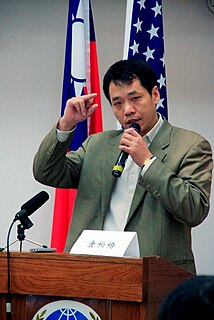 W
WTang Baiqiao is a Chinese political dissident from Hunan province who led student protests during the 1989 democracy movement. After the incident at Tiananmen Square, Tang fled from agents of the Communist Party of China who eventually arrested him in the city of Jiangmen. He was charged with being a counter-revolutionary and imprisoned. Upon his release, he fled to Hong Kong, where he co-authored the report Anthems of Defeat: Crackdown in Hunan Province 1989 - 1992 through Human Rights Watch with Dr. Robin Munro of the University of London. Tang was later accepted into the United States as a political refugee in 1992. Tang claimed that he graduated in 2003 with a Master's degree in international affairs from Columbia University, but university archive and registrar of Columbia University claimed that he studied there but did not graduate.
 W
WTeng Biao is a human rights activist and lawyer in China. Teng is a lecturer at the University of Politics and Law in Beijing. He has been a vocal supporter of human rights activists such as Chen Guangcheng and Hu Jia. He has been arrested at least twice, in March 2008 and in February 2011. He is currently a visiting scholar at Harvard Law School.
 W
WJohn Tong Hon is a Chinese prelate of the Catholic Church. A cardinal since 2012, he was auxiliary bishop of Hong Kong from 1996 to 2008, then coadjutor bishop of the diocese for a year, and Bishop of Hong Kong from 2009 to 2017. In January 2019, he became the apostolic administrator of the diocese, in a caretaker role, after the death his successor, Michael Yeung.
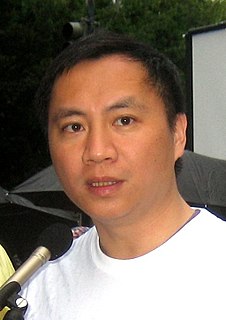 W
WWang Dan is a leader of the Chinese democracy movement and was one of the most visible student leaders in the Tiananmen Square protests of 1989. He holds a Ph.D. in history from Harvard University, and from August 2009 to February 2010, Wang taught cross-strait history at Taiwan's National Chengchi University, as a visiting scholar. He then taught at National Tsing Hua University until 2015.
 W
WWang Zaoshi was a Chinese lawyer and activist for human rights and constitutional government under both the Nationalist Government in Republican China and the People's Republic of China. He was educated at Tsinghua University then went to the United States for a doctorate at University of Wisconsin, Madison and post-doctoral work at University of London. In the years leading up to the Second Sino-Japanese War (1937-1945) he was prominent in the National Salvation Association that agitated for resistance to Japan and criticized the Nationalist government for its weak policies. He was one of the so-called Seven Gentlemen, liberal scholars and activists arrested in 1936 for advocating a United Front between the Nationalist Party and the Communist Party of China in order to fight Japanese expansionism. He was active in the China Democratic League during and after the war.
 W
WWei Jingsheng is a Chinese human rights activist who is known for his involvement in the Chinese democracy movement. He is most prominent for having authored the essay "The Fifth Modernization", which was posted on the Democracy Wall in Beijing in 1978. Due to the manifesto, Wei was arrested and convicted of "counter-revolutionary" activities, and was detained as a political prisoner from 1979–93. Released briefly in 1993, Wei continued with his dissident activities by speaking to visiting journalists, and was imprisoned again from 1994–97, spending a total of 18 years in different prisons. He was deported to the United States on 16 November 1997, on medical parole. Still a Chinese citizen, in 1998 Wei established the Wei Jingsheng Foundation in New York City whose stated aim is to work to improve human rights and democratization in China.
 W
WÖrkesh Dölet, commonly known as Wu'erkaixi, is a political commentator known for his leading role during the Tiananmen protests of 1989.
 W
WGu Yi, also known as Sulaiman Gu, is a Chinese student dissident and human rights activist. He was interrogated and reprimanded for discussing with Ilham Tohti and other Uyghur dissidents and criticizing China's unfair treatment of its minority citizens in Xinjiang in 2009. Later he went abroad to study Chemistry as a graduate student of Chemistry in the University of Georgia continuing his political activism in terms of writings and demonstrations. He was an enthusiastic supporter of 2014 Hong Kong protests. In May 2015, he became widely-known for authoring and organizing an open letter to fellow students in China on the 26th anniversary of the Tiananmen Crackdown.
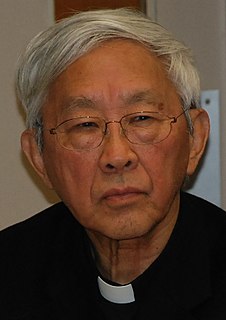 W
WJoseph Zen Ze-kiun SDB is a cardinal of the Catholic Church from Hong Kong, who served as the sixth Bishop of Hong Kong. He was made a cardinal in 2006, and has been outspoken on issues regarding human rights, political freedom, and religious liberty. His strong ties with the pro-democracy camp under the banner of NED often attract criticism from the pro-Beijing camp and the government of the People's Republic of China. He retired on 15 April 2009, but remains a strong pro-democracy influence in Hong Kong.
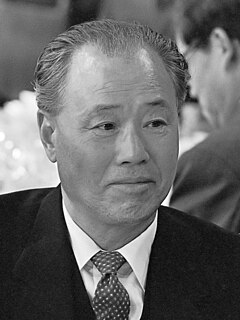 W
WZhao Ziyang was a high-ranking politician in the People's Republic of China (PRC). He was the third Premier of the People's Republic of China from 1980 to 1987, Vice Chairman of the Communist Party of China from 1981 to 1982, and General Secretary of the Communist Party of China from 1987 to 1989. He was in charge of the political reforms in China from 1986, but lost power in connection with the reformative neoauthoritarianism current and his support of the Tiananmen Square protests of 1989.